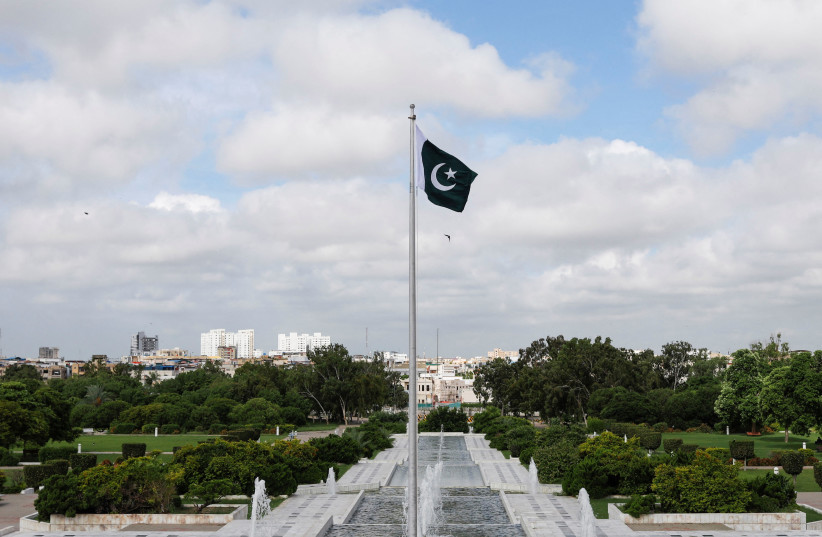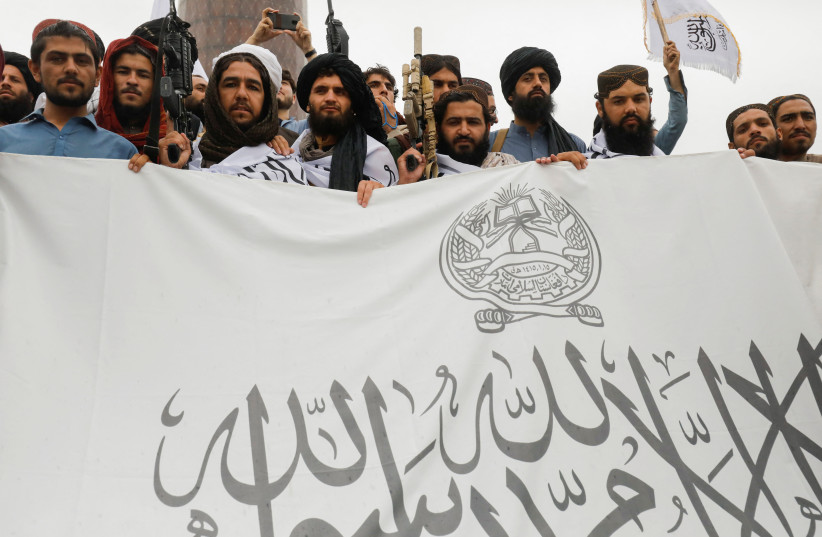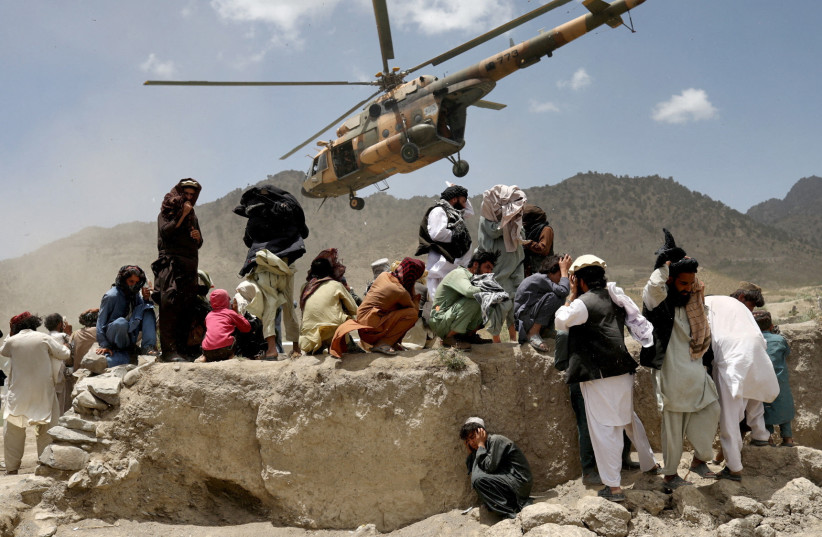[Islamabad] Pakistan immediately rejected allegations from Kabul that it allows the use of its airspace for US attacks on targets within Afghanistan.
“Pakistan has noted, with deep concern, the allegation by the acting defense minister of Afghanistan regarding use of Pakistan’s airspace in the US counterterrorism drone operation in Afghanistan,” Asim Iftikhar Ahmad, spokesman for the Pakistani Foreign Ministry, said on Sunday.
“In the absence of any evidence, as acknowledged by the Afghan minister himself, such conjectural allegations are highly regrettable and defy the norms of responsible diplomatic conduct,” he continued.
“Pakistan reaffirms its belief in the sovereignty and territorial integrity of all states and condemns terrorism in all its forms and manifestations,” Ahmad added.
The spokesman also stressed, “We urge the Afghan interim authorities to ensure the fulfillment of international commitments made by Afghanistan not to allow the use of its territory for terrorism against any country.”
Earlier on Sunday, Afghanistan’s acting Defense Minister Mullah Mohammad Yaqoob Mujahid told a press conference in Kabul, “According to our information, US drones are entering Afghanistan through Pakistan and Pakistan’s airspace is being used for such attacks.
“We demand Pakistan stop the use of its airspace against us,” he said.
“During the withdrawal [a year ago], the US army destroyed our radar system, but we have some intelligence information that the US is violating our air sovereignty by using Pakistan’s airspace,” Mullah Yaqoob, the eldest son of the late Mullah Mohammad Omar, the founder of the Afghan Taliban, said.
On July 31, 2022, al-Qaida chief Ayman al-Zawahiri was killed by a US drone strike in Kabul.
Afterward, accusations emerged that Pakistan’s airspace was used for the attack, but Pakistan denied it.
Imran Khan, the former prime minister of Pakistan, on Sunday criticized the federal government and said that if there is a secret agreement with the United States, it must be made public.
Earlier, on August 25, the Taliban’s chief spokesman Zabiullah Mujahid also claimed in a press conference, “The US drones are still flying in the airspace of Afghanistan,” terming it aggression against a sovereign country.
Mujahid added, “High-level discussions are undergoing with the American side to stop the airspace violation.”
Shireen Mazari, a senior leader of the Khan-led Pakistan Tehreek-e-Insaf party and a former minister of human rights, said in a tweet on Sunday, “This is a serious allegation. We suffered the deaths of our citizens and paid heavy economic costs of fighting US wars before. We cannot be dragged into another such war. The nation needs clarification whether we have again done a deal with the US to allow drone over-flights.”
Mohammed Suhail Shaheen, the Islamic Emirate of Afghanistan’s permanent representative designate to the UN and head of the emirate’s Doha-based Political Office, confirmed to The Media Line, “Afghan Defense Minister Mullah Yaqoob Mujahid spoke about airspace violation while talking to the media in Kabul.
“Of course, the issue will be taken up with the Pakistani government through diplomatic channels,” Shaheen added.
Tasnim Aslam, a veteran Pakistani diplomat, told The Media Line, “Frankly, I don’t know if our airspace is being used for drone attacks inside Afghanistan.
“As for bilateral relations, they need to be seen in the holistic context, common interests, and mutual concerns,” she said.
“Indeed, drone attacks in Afghanistan using Pakistani airspace are a genuine Afghan concern if they have been established,” Aslam said. “Equally and perhaps more serious is the official or unofficial patronage of Tehrik-i-Taliban Pakistan, [the Pakistani Taliban] in Afghanistan.”
Naeem Khalid Lodhi, an Islamabad-based former Pakistani defense minister, told The Media Line, “Whatever the Afghan defense minister said was presumptive and against diplomatic norms. Relations between the two neighboring countries are already under stress and cannot withstand further vitiating statements.
“But having said that,” he continued, “I must hastily add that there are powers which carry out such actions that create misunderstandings.
“The explanation for this new development would not be easy unless someone understands the entire competition going on at international and regional levels,” he said.
“The government of Pakistan must clarify its position on the drone issue. No ground bases have been provided. Overhead flights could be both with and without approval,” Lodhi said. “Flight paths could also emanate from Tajikistan, Kyrgyzstan, or even Indian-occupied Kashmir. So this ambiguity must be resolved. I would trust whatever the State of Pakistan will say.”
Abdul Basit, director-general of the Islamabad Centre for Regional Studies and a former Pakistani ambassador to Germany and high commissioner to India, told The Media Line, “It would have been better if the Kabul government had raised this issue diplomatically rather than in public.
“One can understand Kabul’s concerns as a sovereign country,” he added. “Both countries need to work closely with each other in order to avoid any misunderstanding.”
Farzana Shah is a Peshawar, Pakistan-based expert on Afghanistan’s armed groups and editor of The Global Conflict Watch, a defense and strategic affairs magazine.
She told The Media Line, “The recent statement by the Afghan acting defense minister is not only certainly going to adversely impact the bilateral ties between the two states but may also lead to an internal rift within the Taliban ranks.
“Internal tension within the Taliban ranks could lead to destabilizing the region,” she added.
Shah also claimed, “Mullah Yaqoob is leading the Kandahari group [within the Afghan Taliban], which is believed to be closer to Iran and India, whereas the Haqqani group is inclined toward Pakistan. Yaqoob’s anti-Pakistan statement can be seen in this context.
“It is believed that the Haqqani group suspects Mullah Yaqoob’s Kandahari group of providing the tip to the US about the location of Zawahiri that led to his killing,” she continued.
“The Afghan government, in the case of having such evidence, must approach the Pakistani Foreign Office as per diplomatic norms. Additionally, such public statements are discouraging to Pakistan’s security vis-à-vis India, as New Delhi will get a new impetus for fresh anti-Pakistan overtures in Kabul,” Shah said.
Prof. Adrian Calamel, a New York-based expert on the Middle East and global security, told The Media Line, “This is one of the many problems with the Biden Administration’s [long-distance] ‘Over the Horizion’ counterterrorism policy after abandoning Afghanistan.
“The Afghan defense minister is a high-ranking member of the Taliban and would do anything to scuttle any type of rapprochement between a new administration in Pakistan and America. I don’t believe this will have any impact on the discussions,” the professor said.
“If there was any foresight the US administration would have foreseen this type of problem by keeping a residual force [in Afghanistan].”
Dr. Azeem Khalid teaches international relations at COMSATS University, Islamabad.
Khalid told The Media Line, “Mullah Yaqoob’s claims are of serious concern for Pakistan. Owing to the cordial relationship that Afghanistan enjoys with Pakistan, such comments in such times are highly unexpected for Islamabad.
“Pakistan is providing food, banking services, medical supplies, and other livelihood essentials to the landlocked and hunger-struck country. The most rational choice for Kabul at this time is to maintain a healthy and happy relationship with Islamabad,” he said.
“Mullah Yaqoob, when issuing such an irresponsible statement, should have thought that his own country would be the only one to lose by spoiling relations with Pakistan,” Khalid said.


